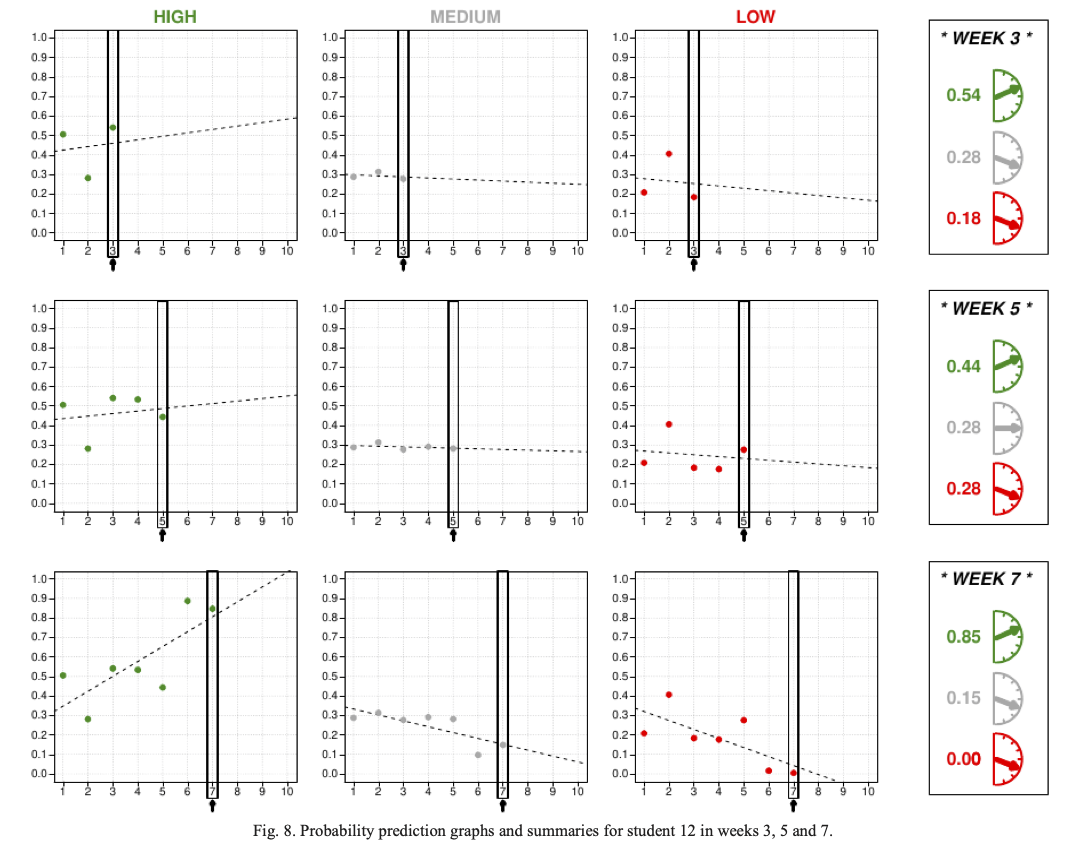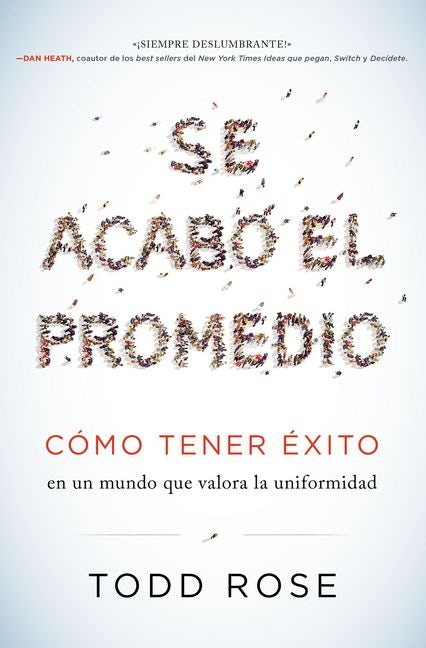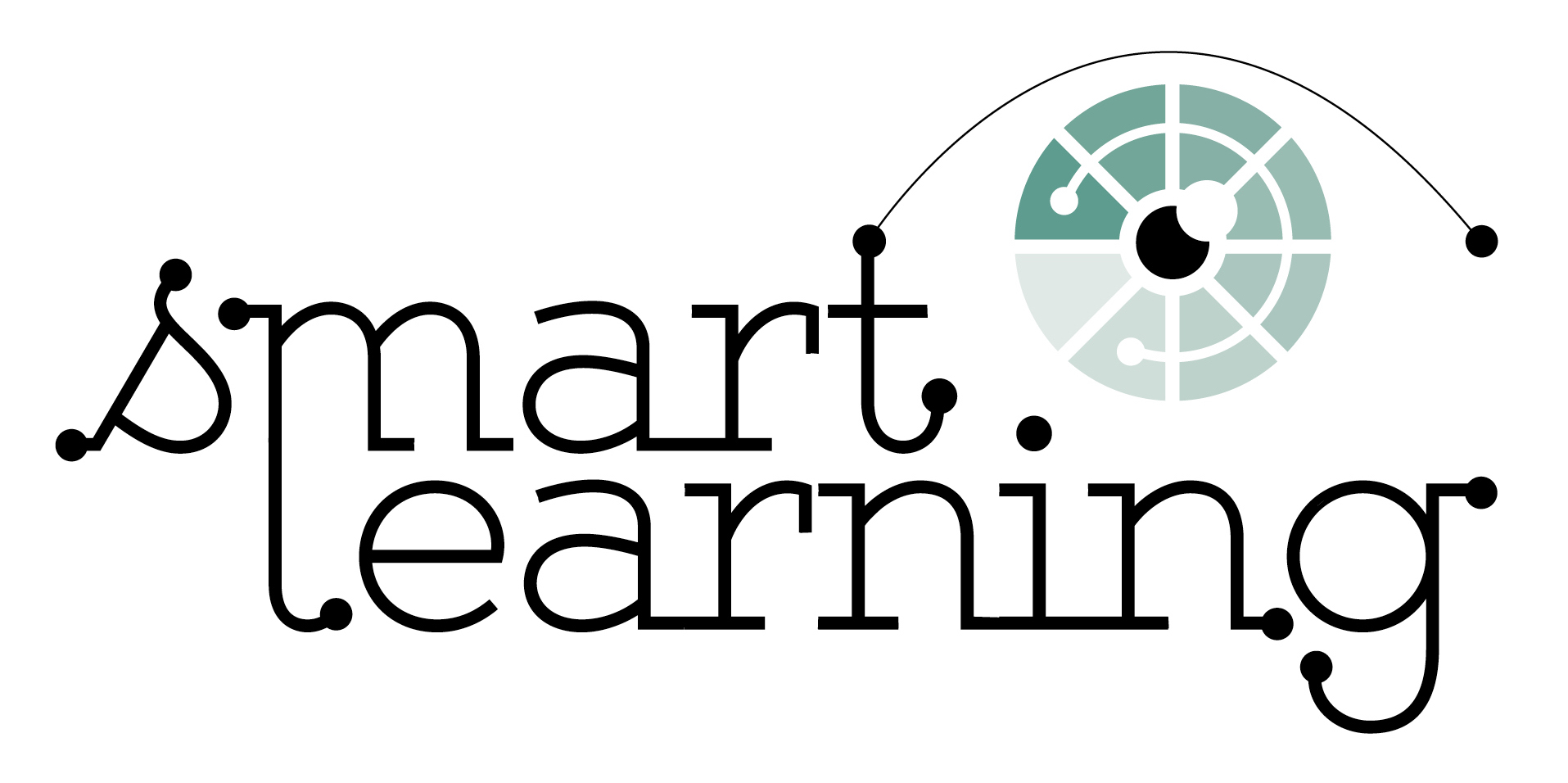Home » Posts tagged 'aprendizaje adaptativo' (Page 2)
Tag Archives: aprendizaje adaptativo
Smartly Learning through step decomposition, automation and Gamification
Smartly Learning through step decomposition, automation and Gamification
Francisco J. Gallego-Durán, Carlos J. Villagrá Arnedo, Rafael Molina-Carmona, Faraón Llorens-Largo
Grupo de investigación Smart Learning
Universidad de Alicante
Track 5. Smart Learning
International Conference on Technological Ecosystems for Enhancing Multiculturality (TEEM’20)
https://2020.teemconference.eu
Online Conference, October 21-23, 2020
Abstract:
On previous years teaching Logic and Algebra many student conceptual issues were identified by analysing their solution attempts to exercises. Present work proposes a new design of exercises and student workflow to target these issues.
Classical algebraic exercises integrate many concepts. Most issues identified were related to low- level concepts. Moreover, students proved unable to identify these issues and solve them by practicing. They tended to get frustrated not knowing the causes of their failures.
This design proposal starts with minimal exercises requiring a single step to be solved. Classical exercises are decomposed into these single steps. Simplicity of these exercises helps generating many instances automatically. Design focus is placed on previously identified issues. Designed exercises are composed in a pyramidal model of knowledge.
To motivate students to carry out many of the proposed exercises, Gamification techniques are used. Designed exercises are automated using Moodle questionnaires. These questionnaires are contextualized as adventure activities in a role play story line, including Quests, Dungeons, Weapons and Bosses. Rules are designed according to this context. Detailed design is included for replication.
Time-Dependent Performance Prediction System for Early Insight in Learning Trends
Time-Dependent Performance Prediction System for Early Insight in Learning Trends
Carlos Villagrá-Arnedo, Francisco Gallego-Durán, Faraón Llorens-Largo, Rosana Satorre-Cuerda, Patricia Compañ-Rosique, Rafael Molina-Carmona
International Journal of Interactive Multimedia and Artificial Intelligence (IJIMAI)
ISSN: 1989-1660
Volume 6, issue 2
2020
https://www.ijimai.org/journal/bibcite/reference/2775
DOI:10.9781/ijimai.2020.05.006
Abstract
Performance prediction systems allow knowing the learning status of students during a term and produce estimations on future status, what is invaluable information for teachers. The majority of current systems statically classify students once in time and show results in simple visual modes. This paper presents an innovative system with progressive, time-dependent and probabilistic performance predictions. The system produces by-weekly probabilistic classifications of students in three groups: high, medium or low performance. The system is empirically tested and data is gathered, analysed and presented. Predictions are shown as point graphs over time, along with calculated learning trends. Summary blocks are with latest predictions and trends are also provided for teacher efficiency. Moreover, some methods for selecting best moments for teacher intervention are derived from predictions. Evidence gathered shows potential to give teachers insights on students’ learning trends, early diagnose learning status and selecting best moment for intervention.
Keywords
E-learning, Education, Learning Analytics, Learning Management Systems, Prediction, Support Vector Machine
Computational Characterization of Activities and Learners in a Learning System
Computational Characterization of Activities and Learners in a Learning System
Alberto Real-Fernández, Rafael Molina-Carmona and Faraón Llorens-Largo
Applied Sciences
ISSN: 2076-3417
Special Issue “Smart Learning”
Volume 10, issue 7
2020
https://www.mdpi.com/2076-3417/10/7/2208
Abstract
For a technology-based learning system to be able to personalize its learning process, it must characterize the learners. This can be achieved by storing information about them in a feature vector. The aim of this research is to propose such a system. In our proposal, the students are characterized based on their activity in the system, so learning activities also need to be characterized. The vectors are data structures formed by numerical or categorical variables such as learning style, cognitive level, knowledge type or the history of the learner’s actions in the system. The learner’s feature vector is updated considering the results and the time of the activities performed by the learner. A use case is also presented to illustrate how variables can be used to achieve different effects on the learning of individuals through the use of instructional strategies. The most valuable contribution of this proposal is the fact that students are characterized based on their activity in the system, instead of on self-reporting. Another important contribution is the practical nature of the vectors that will allow them to be computed by an artificial intelligence algorithm.
Keywords
smart learning; learner characterization; student characterization; feature vector; adaptive learning
Se acabó el promedio
Se acabó el promedio.
Cómo tener éxito en un mundo que valora la uniformidad
Todd Rose
Harper Collins Español (www.harpercollinsespanol.com)
https://harpercollinsespanol.com/libros/libro/9780718087494/se-acabo-el-promedio/
Frases entresacadas e ideas interesantes que puedo utilizar:
(Página 73)
“Las matemáticas del promedianismo son conocidas como estadística. /…/ Pero para comprender con exactitud a los individuos uno debe volverse a una clase muy diferente de matemáticas, conocidas como sistemas dinámicos“.
(Página 74)
“El principal método de investigación del promedianismo es suma, después analiza: primero combina a mucha gente junta y busca patrones en el grupo. Luego usa los patrones de ese grupo (como promedios y otras estadísticas) para analizar y modelar los individuos. En vez de eso, la ciencia del individuo enseña a los científicos a analizar y después sumar: primero, busca los patrones dentro de cada individuo. Luego busca modos de combinar esos patrones individuales en la perspectiva colectiva”.
(Página 77)
“Existe una dificultad en este enfoque individual: requiere una gran cantidad de datos, muchos más que los enfoques promedianos /…/ No obstante, ahora vivimos en la era digital, y en la última década la capacidad para adquirir, almacenar y manipular cantidades masivas de datos individuales se ha convertido en algo práctico y común”.
Los tres principios de la individualidad: principio de la irregularidad (casi cualquier característica humana significativa consiste en múltiples dimensiones), principio del contexto (los rasgos son un mito) y principio de las sendas (todos andamos por el camino menos transitado).
(Página 87)
Principio de la irregularidad. “No podemos aplicar el pensamiento unidimensional para entender algo que es complejo e “irregular”. Una cualidad es irregular si cumple dos criterios. Primero, debe estar compuesta de múltiples dimensiones. Segundo, esas dimensiones deben estar débilmente relacionadas entre sí”.
(Página 112)
Principio del contexto. “La conducta individual no se puede explicar o predecir aparte de una situación particular, y que la influencia de una situación no se puede especificar sin mencionar al individuo que la está experimentando”.
(Página 138)
Principio de las sendas. “Hace dos afirmaciones importantes. Primero, en todos los aspectos de nuestra vida y para cualquier objetivo dado hay muchas maneras igualmente válidas de alcanzar el mismo resultado; y, segundo, la senda particular que resulta óptima para ti depende de tu propia individualidad”.
Capítulo 8. Reemplazar el promedio en la educación superior (pag. 177-195)
(Página 182-183)
“Transformar la estructura promedianista de nuestro sistema actual en un sistema que valore al estudiante individual requiere que adoptemos estos tres conceptos clave:
– Garantizar las credenciales, no los diplomas.
– Reemplazar notas por competencias.
– Dejar que los estudiantes determinen su senda educativa.”
(Página 200)
“Esto significa que si queremos igualdad de oportunidades para todo el mundo, si queremos una sociedad donde cada uno de nosotros tenga las mismas oportunidades de vivir al máximo de su pontencial, entonces debemos crear instituciones profesionales, educativas y sociales que sean responsables con la individualidad”
(Página 202)
“Si estamos buscando la institución donde implementar el ajuste igualitario tendría el mayor impacto inmediato, el lugar para empezar está claro: la educación pública. A pesar del hecho de que el “aprendizaje personalizado” es la expresión que está de moda hoy en la educación, y a pesar de los esfuerzos de muchas organizaciones por buscar cambiar el sistema, casi todo el sistema educativo tradicional sigue diseñado para asegurarse de que los estudiantes reciben exactamente la misma experiencia estandarizada.”
Smart Learning – Grupo de Investigación en Tecnologías Inteligentes para el Aprendizaje (logo)
Smart Learning
Grupo de Investigación en Tecnologías Inteligentes para el Aprendizaje
https://cvnet.cpd.ua.es/curriculum-breve/grp/es/grupo-de-investigacion-en-tecnologias-inteligentes-para-el-aprendizaje-(smart-learning)/687
Ya tenemos logo. ¿Os gusta?



